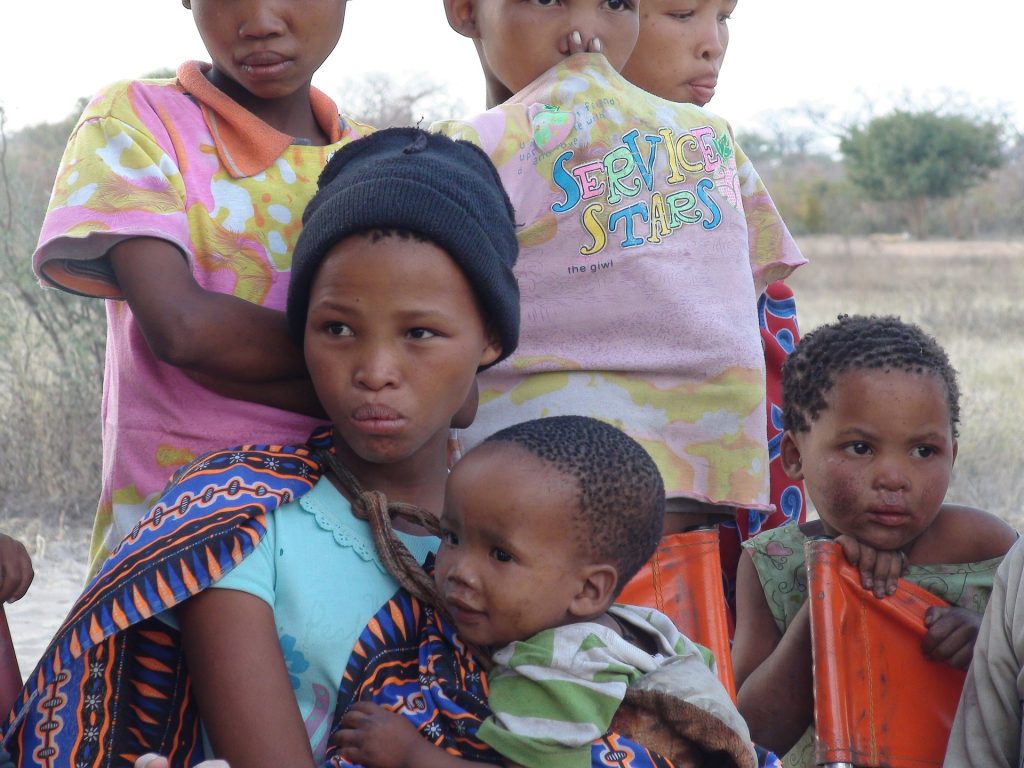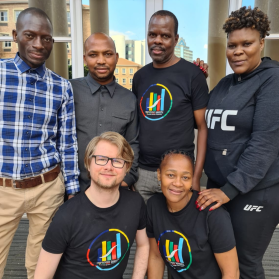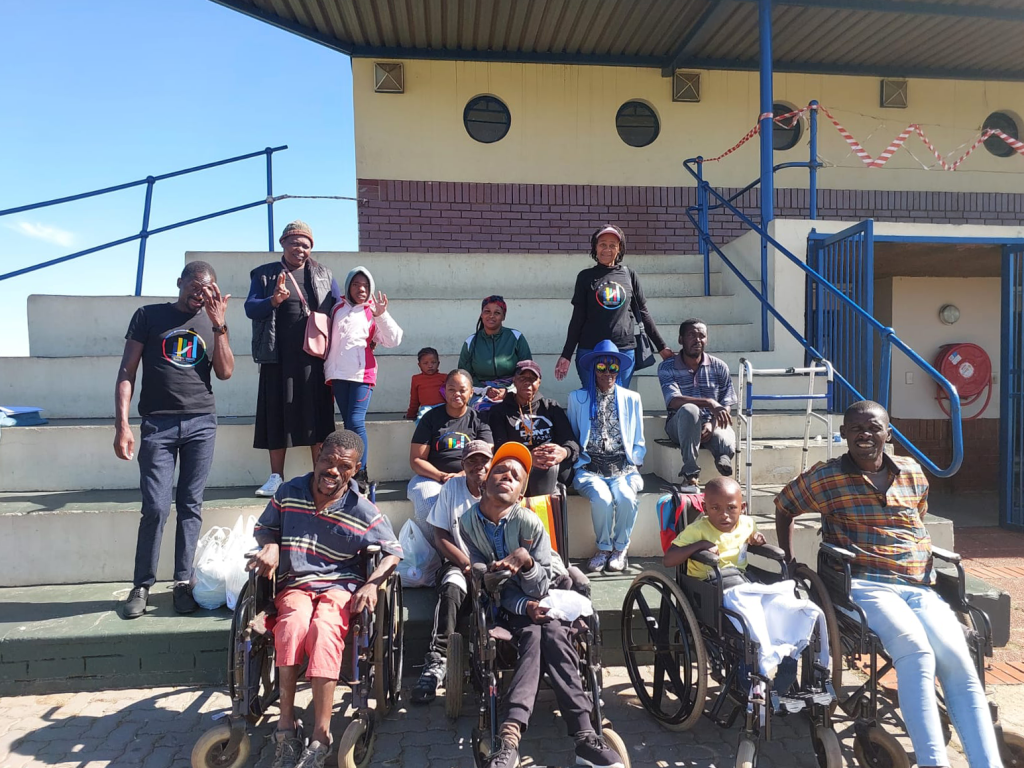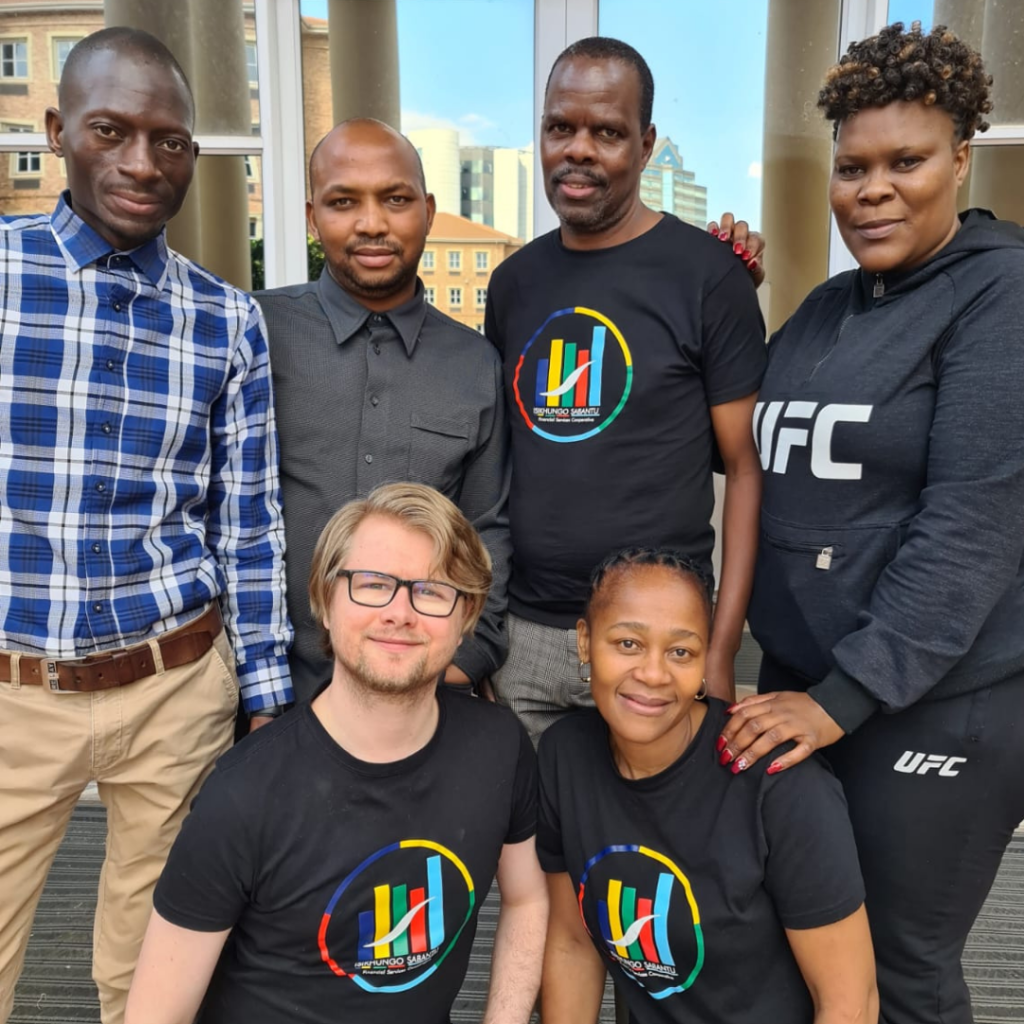


Isikhungo Sabantu is a non-profit organization committed to empowering previously disadvantaged communities in South Africa. The organization was established with the aim of addressing the challenges faced by vulnerable groups, including teenage mothers, people with disabilities, and individuals from low-income communities, in accessing education, healthcare, employment, and basic needs. Isikhungo Sabantu believes that every individual has the potential to thrive and succeed, and that it is crucial to provide them with the necessary support and resources to do so. Through its various initiatives, Isikhungo Sabantu is dedicated to promoting social inclusion, community development, and sustainable growth in South Africa.
Teenage Mother Empowerment
Isikhungo Sabantu NGO is a non-profit organization that aims to empower teenage mothers in South Africa through education and employment opportunities. The organization seeks to address the challenges faced by teenage mothers, such as dropping out of school, poverty, and limited job opportunities, by providing them with the necessary support and resources to finish school and find employment.
Objectives: The main objectives of the empowerment program are:
- To support teenage mothers to complete their high school education.
- To provide vocational training and skills development to increase their chances of employment.
- To help teenage mothers find employment and become financially independent.
- To create a supportive network for teenage mothers that promotes their well-being and self-esteem.

Target audience: The program is aimed at teenage mothers between the ages of 13 and 19 who have dropped out of school due to pregnancy and/or child-rearing responsibilities. The program will be implemented in South Africa, targeting communities with high rates of teenage pregnancies and school dropouts.
Program Components: The empowerment program will consist of the following components:
Educational Support: The program will provide academic support to teenage mothers to help them complete their high school education. This will include tutoring, study materials, and access to educational resources.
Vocational Training: The program will offer vocational training and skills development courses to teenage mothers to increase their chances of employment. The training will focus on marketable skills such as computer literacy, entrepreneurship, and customer service.
Job Placement: The program will assist teenage mothers in finding employment opportunities through job placement services and networking events.
Counseling and Support: The program will provide counseling and emotional support to teenage mothers to help them overcome the challenges they face and build their self-esteem.
Networking and Community Building: The program will facilitate networking and community building activities for teenage mothers to create a supportive environment where they can share experiences and learn from each other.
Expected Outcomes: The expected outcomes of the empowerment program are:
- Increased high school completion rates among teenage mothers.
- Increased employment rates among teenage mothers.
- Improved financial stability and independence for teenage mothers.
- Improved well-being and self-esteem among teenage mothers.
- Increased community awareness and support for teenage mothers.
Budget: The estimated budget for the program is ZAR 2,000,000. This includes costs for staffing, educational materials, vocational training, job placement services, counseling, and networking activities.
Timeline: The program will run for a period of two years, with the possibility of extension depending on the results achieved.
Conclusion: The Isikhungo Sabantu NGO Empowerment Program for Teenage Mothers in South Africa is designed to provide educational and employment opportunities to teenage mothers who have dropped out of school due to pregnancy and/or child-rearing responsibilities. The program aims to empower teenage mothers by providing them with the necessary support and resources to complete their education and find employment, thus improving their financial stability and overall well-being.
Isikhungo Sabantu Financial Services Cooperative
Isikhungo Sabantu NGO is a non-profit organization that aims to empower previously disadvantaged communities in South Africa through financial literacy and cooperative banking. The organization seeks to address the challenges faced by these communities, such as limited access to financial services and lack of knowledge on how to manage and invest their finances, by providing them with the necessary support and resources to create generational wealth for their families and communities.
Objectives: The main objectives of the cooperative bank project are:
- To promote financial literacy and education in previously disadvantaged communities.
- To establish a cooperative bank that provides accessible and affordable financial services to members of these communities.
- To empower members of these communities to invest in their businesses and communities and create generational wealth.

Target audience: The program is aimed at previously disadvantaged communities in South Africa, including individuals and small businesses that have limited access to financial services and resources.
Program Components: The cooperative bank project will consist of the following components:
Financial Literacy Workshops: The program will provide financial literacy workshops to members of these communities to increase their knowledge and understanding of financial concepts and strategies for managing their finances.
Cooperative Bank Formation: The program will establish a cooperative bank that provides accessible and affordable financial services to members of these communities, including savings accounts, loans, and investment opportunities.
Business Development Support: The program will provide business development support to members of these communities to help them start and grow their businesses, including access to business training, mentoring, and networking opportunities.
Community Investment: The program will encourage members of these communities to invest in their businesses and communities through the cooperative bank, thereby creating generational wealth for their families and communities.
Expected Outcomes: The expected outcomes of the cooperative bank project are:
- Increased financial literacy and education in previously disadvantaged communities.
- Improved access to financial services for members of these communities.
- Increased investment in businesses and communities by members of these communities.
- Creation of generational wealth for families and communities.
- Improved economic development and stability for previously disadvantaged communities.
Budget: The estimated budget for the program is ZAR 5,000,000. This includes costs for staffing, financial literacy workshops, cooperative bank formation, business development support, and community investment initiatives.
Timeline: The program will run for a period of three years, with the possibility of extension depending on the results achieved.
Conclusion: The Isikhungo Sabantu NGO Cooperative Bank Project for Previously Disadvantaged Communities in South Africa is designed to promote financial literacy and education, establish a cooperative bank, and empower members of these communities to invest in their businesses and communities and create generational wealth. The program aims to address the challenges faced by previously disadvantaged communities in accessing financial services and resources, and to promote economic development and stability in these communities.
Soweto's Ability Center

Isikhungo Sabantu NGO is a non-profit organization that aims to empower people with disabilities in Soweto, South Africa. The organization seeks to address the challenges faced by people with disabilities in accessing education, healthcare, employment, and basic needs, such as food and shelter. The disability center will provide these individuals with the necessary support and resources to become independent, self-sufficient, and active members of their communities.
Objectives: The main objectives of the disability center project are:
- To provide education and vocational training to people with disabilities in Soweto.
- To provide healthcare and rehabilitation services to people with disabilities.
- To facilitate employment opportunities for people with disabilities.
- To provide basic needs, such as food and shelter, to people with disabilities.
- To promote social inclusion and community integration of people with disabilities.
Target audience: The program is aimed at people with disabilities in Soweto, South Africa, including individuals who are homeless, unemployed, and have limited access to education, healthcare, and basic needs.
Program Components: The disability center project will consist of the following components:
Education and Vocational Training: The program will provide education and vocational training to people with disabilities, including literacy, numeracy, computer skills, and vocational skills, such as tailoring, carpentry, and cooking.
Healthcare and Rehabilitation Services: The program will provide healthcare and rehabilitation services to people with disabilities, including medical care, physical therapy, and psychological counseling.
Employment Opportunities: The program will facilitate employment opportunities for people with disabilities, including job matching and placement, skills development, and entrepreneurship training.
Basic Needs Support: The program will provide basic needs support, such as food and shelter, to people with disabilities who are homeless or in need.
Social Inclusion and Community Integration: The program will promote social inclusion and community integration of people with disabilities, including community awareness campaigns, peer support groups, and recreational activities.
Expected Outcomes: The expected outcomes of the disability center project are:
- Increased access to education and vocational training for people with disabilities.
- Improved access to healthcare and rehabilitation services for people with disabilities.
- Increased employment opportunities for people with disabilities.
- Improved access to basic needs, such as food and shelter, for people with disabilities.
- Increased social inclusion and community integration of people with disabilities.
- Improved quality of life and independence for people with disabilities.
Budget: The estimated budget for the program is ZAR 8,000,000. This includes costs for staffing, education and vocational training, healthcare and rehabilitation services, employment opportunities, basic needs support, and social inclusion and community integration initiatives.
Timeline: The program will run for a period of five years, with the possibility of extension depending on the results achieved.
Conclusion: The Isikhungo Sabantu NGO Disability Center in Soweto, South Africa is designed to provide education, healthcare, employment, and basic needs support to people with disabilities, and promote their social inclusion and community integration. The program aims to address the challenges faced by people with disabilities in accessing education, healthcare, employment, and basic needs, and to empower them to become independent, self-sufficient, and active members of their communities.